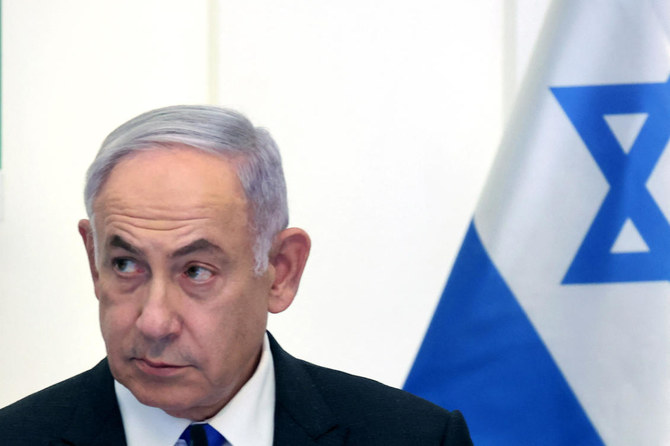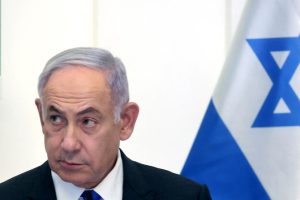In recent times, the Israeli military’s strategies have been subjected to intense scrutiny and debate, particularly concerning the proposed ‘tactical pause’ plan. Prime Minister Benjamin Netanyahu’s denouncement of this plan has sparked widespread discussion both within Israel and on the international stage. This article aims to delve into the details of the ‘tactical pause’ plan, Netanyahu’s stance on it, and the implications it carries for Israel’s military operations and broader geopolitical landscape.
The ‘Tactical Pause’ Plan: Overview and Objectives
The ‘tactical pause’ plan, as proposed by certain factions within the Israeli military, entails a temporary cessation of offensive operations in certain conflict zones, notably in Gaza and the West Bank. The primary objective behind this proposed strategy is to de-escalate tensions and pave the way for potential negotiations or diplomatic initiatives aimed at resolving the long-standing Israeli-Palestinian conflict.
Netanyahu’s Critique: Concerns and Contradictions
Prime Minister Benjamin Netanyahu has vehemently opposed the ‘tactical pause’ plan, citing various concerns and contradictions inherent in its implementation. One of the foremost criticisms leveled by Netanyahu is the perceived weakness or concession it might signal to Israel’s adversaries, particularly Hamas and other militant groups operating in Gaza. Netanyahu argues that any semblance of retreat or hesitation could embolden these groups and undermine Israel’s deterrence capabilities.
Moreover, Netanyahu has underscored the inherent risks of unilateral ceasefire initiatives, cautioning against the potential for exploitation by militant factions. He contends that past experiences have shown unilateral ceasefires to be exploited by Hamas for regrouping, rearming, and launching subsequent offensives against Israel. From Netanyahu’s perspective, a ‘tactical pause’ without robust guarantees or reciprocal commitments from the Palestinian side would be tantamount to strategic folly.
Analysis: Assessing Netanyahu’s Position
Netanyahu’s opposition to the ‘tactical pause’ plan reflects his broader approach to national security and regional dynamics. As a seasoned statesman with a long-standing commitment to Israel’s security interests, Netanyahu prioritizes a stance of strength and resilience in dealing with adversaries. His skepticism toward unilateral concessions or temporary ceasefires stems from a deep-seated belief in the imperative of deterrence and unwavering resolve in the face of threats.
Furthermore, Netanyahu’s critique underscores the complex interplay between military strategy, political considerations, and public perception. As the leader of a nation grappling with persistent security challenges and existential threats, Netanyahu faces the delicate task of balancing the imperative of military action with the pursuit of diplomatic solutions. His steadfast rejection of the ‘tactical pause’ plan reflects not only strategic calculations but also political pragmatism and a keen awareness of public sentiment.
Comparative Analysis: Alternative Approaches
To gain a comprehensive understanding of the ‘tactical pause’ plan and Netanyahu’s response, it is instructive to compare and contrast alternative approaches advocated by different stakeholders within Israel’s political and military establishment. While Netanyahu favors a more assertive and cautious stance, emphasizing the need for robust deterrence and minimal concessions, other voices advocate for a more nuanced and flexible approach.
For instance, proponents of the ‘tactical pause’ plan argue that a temporary cessation of hostilities could create a conducive environment for diplomatic initiatives, potentially leading to long-term stability and conflict resolution. They contend that by demonstrating goodwill and willingness to de-escalate, Israel could garner international support and undermine the narrative of its adversaries.
Analysis Table: Netanyahu’s Critique of the ‘Tactical Pause’ Plan
| Concerns Raised by Netanyahu | Contradictions Highlighted |
|---|---|
| Perceived weakness or concession to adversaries | Risk of emboldening militant groups |
| Potential for unilateral ceasefire exploitation | Past experiences of Hamas exploiting ceasefires |
| Need for robust guarantees and reciprocity | Lack of assurances from the Palestinian side |
Comparative Table: Alternative Approaches to Conflict Resolution
| Approach | Advantages | Disadvantages |
|---|---|---|
| ‘Tactical Pause’ Plan | De-escalation of tensions; potential for diplomacy | Risk of unilateral ceasefire exploitation |
| Assertive Deterrence Strategy | Strengthens deterrence capabilities | Potential for escalation; diplomatic isolation |
| Nuanced Diplomatic Engagement | International support; potential for peace negotiations | Susceptibility to external pressures and concessions |
Regional and International Ramifications
Beyond its domestic implications, Netanyahu’s stance on the ‘tactical pause’ plan reverberates across the broader regional and international landscape. Israel’s approach to conflict resolution and military strategy holds significant implications for its relationships with neighboring states, regional actors, and global powers. Netanyahu’s rejection of the ‘tactical pause’ plan reaffirms Israel’s commitment to a proactive and assertive stance in the face of regional security challenges, thereby shaping perceptions of Israeli resolve and willingness to compromise.
Moreover, Netanyahu’s critique resonates with broader debates surrounding the efficacy of military force versus diplomatic engagement in addressing protracted conflicts. As Israel grapples with the complexities of the Israeli-Palestinian conflict, the divergent perspectives within its leadership reflect contrasting visions of security, peace, and national interest. The outcome of this debate will not only influence the trajectory of Israeli military operations but also shape the prospects for stability and reconciliation in the Middle East.
Public Opinion and Political Dynamics
The controversy surrounding the ‘tactical pause’ plan also intersects with evolving public opinion dynamics within Israel and the wider international community. Netanyahu’s stance on military strategy and conflict resolution resonates with certain segments of the Israeli populace, particularly those who prioritize security concerns and skepticism towards concessions to adversaries. Conversely, critics argue that Netanyahu’s approach risks perpetuating cycles of violence and undermining prospects for meaningful dialogue and coexistence.
Furthermore, Netanyahu’s handling of the ‘tactical pause’ plan intersects with broader political dynamics within Israel, including coalition dynamics, electoral considerations, and the looming specter of leadership succession. As Netanyahu navigates the complexities of governing a diverse and polarized society, his approach to national security issues carries profound implications for his political standing and legacy. The coming months will likely witness intensified debates and deliberations surrounding Israel’s military strategy and its implications for peace and stability in the region.
Conclusion
In conclusion, Benjamin Netanyahu’s denouncement of the Israel military’s ‘tactical pause’ plan underscores the complexities and challenges inherent in navigating the Israeli-Palestinian conflict. While the proposed plan aims at de-escalating tensions and exploring diplomatic avenues, Netanyahu remains wary of its potential pitfalls and the risks it poses to Israel’s security. As the debate continues to unfold, the ultimate trajectory of Israeli military strategy and the prospects for peace in the region remain subject to ongoing deliberation and contention.











